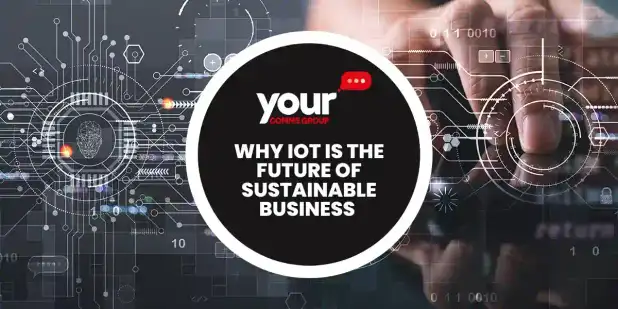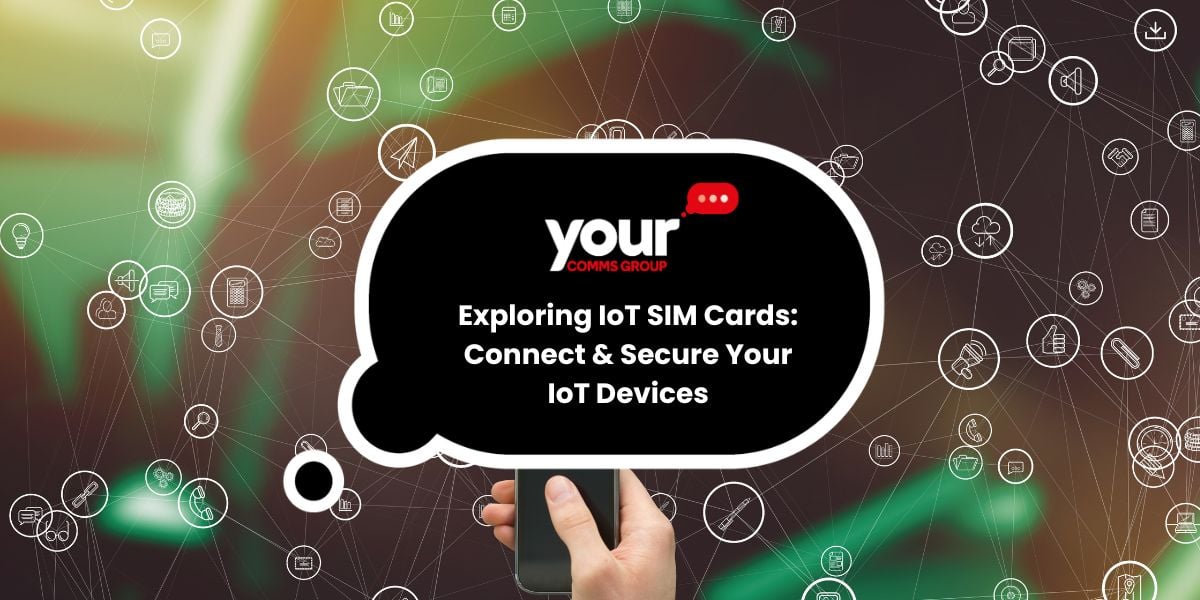What is an IoT SIM card?
What is an IoT SIM Card: An Easy Explanation. IoT devices (or Internet of Things) refers to any device connected to the internet. Devices can be...

Over the coming years one of the most critical objectives for all businesses, regardless of size, will be to reduce their impact on the environment and create more sustainable ways of working. The key to finding new and innovative ways of reducing waste (whether that’s of the carbon or financial variety) while also driving productivity lies in generating intrinsic workforce enthusiasm, excitement, and empowerment that can help deliver the changes businesses will need to make in how they operate.

The problem is that there’s plenty of evidence to suggest that over the last 30 years, rather than inspiring better engagement with workplace goals, industrial tech has instead generated demotivation, discontent, and disempowerment by prematurely automating the workforce.
The Internet of Things (IoT) gives us all the opportunity to change that dynamic for the better and put sustainable growth at the heart of the commercial framework for every business.
More than half of all jobs globally are held by small and medium-sized firms (SMEs), which account for nearly 90% of all businesses worldwide. They have a crucial impact on the world economy and may also be able to help address the climate catastrophe.
IoT technologies can support SMEs in reducing waste, streamlining operations, and more effectively monitoring processes can take advantage of a fantastic opportunity to create a sustainable and prosperous future.
Recent research suggests that all the UN's published Sustainable Development Goals are already addressed or have the potential to be addressed by 84% of all existing IoT deployments.
Put another way, IoT is already capable of doing much of the heavy lifting on meeting the world’s commercial sustainability objectives.
Because they’re designed with a sustainable future in mind, IoT solutions are already more likely to have a more positive environmental effect and will at the same time increase productivity and efficiency.

Obvious areas where this impact is already being seen are improving accessibility to renewable energy and promoting energy efficiency. It’s thought that in a global context, adopting sustainable business methods might potentially open up trillion-dollar market opportunities and lead to the creation of millions of new jobs, so there’s a deep-rooted incentive to leverage sustainability through IoT.
In more practical ways, IoT solutions can help SMEs to improve the processes relating to green certification standards, which in turn opens up new market prospects and financial resources through appropriate grants and government support programmes.
As with all technologies, the cost of adopting IoT solutions is decreasing, and as those costs continue to decay the volume of suppliers will rise, ensuring a healthy, affordable, and competitive market that lowers the barriers to entry for smaller businesses that want to use IoT to drive their sustainability commitments.

All of this helps companies maintain operational control, reduce waste, and uphold environmental standards.
We live in a world that has been largely shaped by the damage that industrial progression has brought. For perhaps the first time, we are seeing technological innovation that genuinely has the capacity to make the world a better, healthier, and greener place.
If you’d like to find out how we can help you to deploy IoT solutions that deliver sustainable growth to your business, please get in touch with our friendly team or book a meeting with our IoT expert Josh today.

What is an IoT SIM Card: An Easy Explanation. IoT devices (or Internet of Things) refers to any device connected to the internet. Devices can be...

There are an abundance of IoT cloud platforms out there on the web, and we know how hard it can be to decide which cloud platform is best for your...

In the expanding Internet of Things (IoT) world, SIM cards enable devices to communicate and transmit data over cellular networks. However, not all...